The advice I gave in Part I of Becoming a Resilient Writer went down pretty easy, maybe not ‘strawberry milkshake’ easy but certainly ‘spinach smoothie’ easy. Part II is full of suggestions that most will find about as palatable as shooting apple-cider vinegar straight. However, as a beneficiary of honest writing advice myself I feel compelled to pass these lessons on. "Clearly the message of resilience resonated with the wider writing community. " The first lesson on the second stage of my writing journey is this: view rejection as a personal victory. I am not kidding when I tell you that I literally jumped out of my chair and did a double fist-pump in the air when the notification of my first rejection popped up on my phone. I was elated. Why? Because I was rejected by a big publisher. That means they had considered it. For three seconds, three pages, or thirty minutes, it didn’t matter. And believe me when I say it was not the last rejection I received. If I had let those rejections knock me down a notch I’d be far enough underground to hit the water table by now. Whatever I felt, whether it was excitement, frustration, or fear, I threw into the tank as fuel to send out another query, to reach out to another author, or to push through another edit of my manuscript. So don’t let rejection burn you down; use it as rocket fuel instead and eventually you will achieve lift-off. "So don’t let rejection burn you down; use it as rocket fuel instead and eventually you will achieve lift-off. "
"That twenty five minutes which should have been spent crafting the final climactic scene will be squandered scrolling through the responses (or a depressing lack thereof) on your feed. Instances become patterns. Patterns become habits." The third piece of advice I have for writers who aspire to publish their work is this: start networking early and pay it forward whenever you can. There is an incredibly diverse and active community of writers, published and unpublished, who are working their fingers into nubby little stumps trying to get their next book finished and released. Recognize that the rush you get from someone sharing a post about your novel or commenting on an interview you were in is something of value that you can pass on to other people. Here’s the best part: it only costs you a bit of time and energy. And while some might say that time spent connecting with and encouraging other authors should be spent writing, your future publisher might disagree. After all, writing a book is only the beginning; your future publisher is part of the publishing industry and that means selling books. The professional support network you build will be instrumental in getting your book into the hands of fans all over the world. So do unto others as you’d hope they would do to you: send encouraging notes, cheer on their successes, and invest in your own community of author friends, publishing contacts, and future fans. "And while some might say that time spent connecting with and encouraging other authors should be spent writing, As I said in Becoming a Resilient Writer (Part I), not everything that works for me will work for you. But the creative potential within you will not be fully realized if you don’t have the resiliency to see your projects through. Stand firm, forge ahead, and write the story you were born to tell. For more on writing and resiliency Joshua suggests reading Steven Pressfield’s The War of Art.
0 Comments
Much like the mythic Spring of Eternal Youth, the secret source of humanity’s ability to be creative continues to evade us. However, there is another question that I think can be answered: When do ideas appear? The answer to that question, and our willingness to adjust our lifestyle to it, may be the ‘secret’ that so many seek. So if you are not currently living a creative life and would like to I am offering a concrete, cost-less step that you can take on that journey. "If you are not currently living a creative life and would like to The Other Big Question: When do ideas appear? My Answer: Microspaces. Microspaces, as I define them, are all the insignificant moments of the day. Taking the elevator. Stopping at a red light. Brushing your teeth or standing in line at the grocery store. Tying your shoes. Sitting on the toilet. Microwaving your lunch. Waiting for the bus. Watching a laggy webpage load. Microspaces offer brief moments of mental liberty. They are the empty ‘inbetweens’ in our days that so easily go unnoticed. They are the white space between the letters. They are the silence between notes. They are the breaks in the pattern and the place between strokes. "Microspaces offer brief moments of mental liberty. In my experience these microspaces are exactly when my best ideas appear. Not during dedicated brainstorming sessions. Not during my scheduled writing time. Not while doing research or hammering out words on the keyboard. They float into my mind during those empty moments. But look carefully at the microspaces listed above and you may find that those moments are not so empty for you.
When all the white space on the page gets filled the text fades into chaos. Without the silence between notes the concerto becomes a cacophony. But that is how most people are living right now and human creativity suffers for it. So what’s the good news? We are all in control of how we manage our microspaces. "Advertisers and developers pride themselves on filling every unclaimed surface and second in our lives with noise." If you are serious about being a creative person you need to actively cultivate your microspaces. Don’t fill every moment looking at a screen or gawking at photoshopped models in advertisements or on magazines. Just let your eyes rest on those round buttons in the elevator. Stare at the seagulls outside while you wait in line at the store. Don’t make a habit of checking your phone in the bathroom and look out the bus window rather than up at the ads. "If you are serious about being a creative person you need to actively cultivate your microspaces." Nothing has been more rewarding in my creative journey than protecting my microspaces from mental clutter, but don’t interpret this advice as dismissive of the hard labour that goes into being creative. Ideas are raw materials that need to be shaped and refined through hard creative labor. However, if you don’t allow room for microspaces in your day you’ve cut yourself off from that mysterious spring of ideas somewhere beyond our reach. Embrace your microspace. To experience the benefits of microspaces in your creative journey Joshua challenges you leave your phone turned off for a day.
"authors are asked to describe their typical writing day in detail from start to finish" After I sent Rob the final draft I had a chance to read through the days of countless other authors. It was intriguing to find such a spectrum of approaches and experiences; hardly any were similar. From college delinquents to stay-at-home Dads to depressed poets to caffeine-fueled super-Moms, each writer had a distinctly different story to tell. Thanks again to Rob for curating this collaborative effort within the writing community and best wishes to each writer who so generously shared their story on My (Small Press) Writing Day. Find out about my writing day, and so many others, here.
Joshua talks writing, myths, and living a creative life with the good folks at Tree District Books. Listen in on the conversation here.
What does a productive day of writing look like to you? Are there any changes you made that helped you become more productive? I deal with a lot with side effects after going through chemotherapy a few years ago. I wake up every morning feeling hungover. By the time I’m well enough to write it’s afternoon. I don’t have the luxury to believe in writer’s block. Steven Pressfield’s books War of Art and Turing Pro both helped me get past any of that. I keep trying to be healthier too. I think people underestimate the power of nutrition and exercise. Everything is interrelated in our body and mind. You’d be surprised how many successful writers have dogs they walk daily. I can’t have a dog where I live, but I make sure to get out and get the blood flowing through my body. I think a lot of young writers start out sharp, but then slowly lose their edge due to physical negligence. The healthier I am, the stronger my mind is. Do you have any tips for writers trying to promote a finished or nearly finished work? I think a lot of people make the mistake of trying to promote themselves directly. Build your social media network and your blog followers, but not in a way that’s sales focused. Find people that reciprocate and are supportive and support them back. I’ve never asked anyone directly – even family – to buy my work or retweet any of my posts (other than recent giveaways). Instead, I share what’s interesting and read and like other people’s posts. It’s not all about me. I also go to other author’s readings and signings without expecting anything in return. Networking this way got me a book deal. I was able to put followers, post hits, readers, likes, etc. in the book proposal I gave my publisher to show that people were interested in my work and that I could promote a published book if given the opportunity. Today, you need to market your own writing. It’s not easy. If you don’t have the means to do it you’re in trouble. Publishers know this and want to see that you’re ready. Good writing isn’t enough. You’re a salesperson. Public speaking is a must. I believe Twitter is misunderstood and underutilized by Canadian writers. It takes a while to build a presence, but it’s a powerful tool. That being said, I dedicate a small portion of my day to social media and then sign off. I’ve got writing to do. It’s rare for me to share a #nowwriting post. How can I be writing if I’m on Twitter or Instagram? A final thing is that I value anyone who reads my work. I try to sign books with a sentence or two saying thank you. I’m nothing without readers and other people who helped me along the way. If you write like I do, you know you’re always going to keep writing. You’ll never stop. It’s not an easy road. I remember when I first posted online I would get one or two readers for some posts and I was happy. Now, I think about posts that have gotten thousands and try to remember that they’re the same people, coming in ones and twos, there are just more of them. Gratitude is everything. "If you write like I do, you know you’re always going to keep writing. You’ll never stop. It’s not an easy road."
One reviewer’s editor made her review less favourable by adding sections to what she had written. He compared me to an author from the eighties who described himself as a “wizard exorcist.” This editor insinuated my book was no different than his for real. He did this using another author’s name, not his own. He had never even read my book. There isn’t a single similarity between my work and this other guy’s books, which included spells and such. The editor then only allowed her to publish the review online but not in their print version, which is widely circulated. I’m a veteran. I’ve won awards for my writing. I’ve been recognized multiple times in my previous career for various criminal arrests and large dollar recoveries. I might be a lot of things, but I’m not a wizard or an exorcist. For strategic reasons, I had to accept the review and say nothing, even to her, though clearly I was able to figure out what happened as I was confused. The industry is rife with nepotism. There are a lot of politics. "The industry is rife with nepotism. There are a lot of politics." Readers really liked The Haunting of Vancouver Island though, which is why it has done so well. Even academics who gave it a chance have contacted me to say they liked my approach to the subject. It’s being carried in museums all over the island. To me, this is a huge win. The Haunting of Vancouver Island is also being sold in a lot of First Nations galleries. I’m honoured by that. Most ghost books are really just white settler stories or sensationalized scary non-white ghosts. Some authors even call Indigenous content “myth” when it’s in the same collection as white stories. Many people approach this subject with old fashioned thinking. How can a title claim to be about a geographical area but really just be about the white settler ghosts? Yet, some of the First Nations ghost stories I’ve been told are my favourite. There is more of an acceptance of the spirit world in First Nations culture. If I die tomorrow, I’ll be most proud to have written something that honours all Vancouver Island residents. "If I die tomorrow, I’ll be most proud to have written something that honours all Vancouver Island residents." One more negative thing is that since The Haunting of Vancouver Island has been published I’ve had a lot of content stolen – other authors and online writers telling stories from my book without attributing them. News stations around Halloween too. This doesn’t happen with any other nonfiction subject I know of, like cooking books, journalism, or photography. After being published, I joined the Writer’s Union of Canada. I think appropriation of writers’ works needs to be shut down. The problem with ghost stories is that writers present the stories as fact – nonfiction – yet because the stories are not being treated as folklore or in a cultural context they’re actually being stolen and repackaged, either from a kid on the street, a community, or another author. It’s theft. When the story is embellished – made scarier for profit or ghost tours – it’s a type of folklore fraud that is only now starting to be called out all over the world. Some authors have been rewriting history for their own gain, when they claim someone was murdered somewhere when it never happened, or have made unfounded accusations of sexuality or abuse committed by an actual deceased person (amazing what psychics conveniently come up with). It bleeds into historic records sometimes. There are several examples I found on Vancouver Island. Plus, the slandered dead often have living family members. Like I said, the subject is not well respected. A lot of authors try hard then have their work stolen and repackaged. Other use psychics to say whatever they want. As soon as a psychic is involved, it’s not folklore or nonfiction even. It’s religion. That distinction needs to be made clearer when the book is packaged by the publisher. You draw a lot from local lore and history in your work. Do you have any advice for other history hunters in terms of where to dig up good stories? Talk to people and be respectful. The most valuable stories are first-hand accounts. Learn how to research too. There are a lot of gems out there. One of my favourite accounts in The Haunting of Vancouver Island came from a published academic paper. It’s a more contemporary First Nations story about a cannibal spirit who shapeshifts between a giant snake and a beautiful woman. The source is clearly stated in the book. Both the author of the paper and the Elder the paper was citing. I volunteered at the Nanaimo museum while I was still sick but before I returned to university. This is where I learned a lot about researching history. For years, I was an investigator of property crimes as I’ve mentioned already. There are similarities between putting together a criminal case and piecing together history. People who are good at either one learn to love the chase. There’s actually a rush when you piece some of these stories together. "Talk to people and be respectful. The most valuable stories are first-hand accounts." Could you offer any tips on what goes into making a story scary? And is there anything that people get wrong about trying to be scary? For nonfiction, building trust by being as honest as possible makes those uncanny accounts more terrifying, especially when you begin to realize that people from every culture in history have claimed to have had these experiences. Due to social norms, there’s an inaccurate but widespread belief that promotes the idea that science disputes that people have these experiences. It does not. When we realize the phenomena of seeing ghosts is real, then we can decide if these are spirits of the dead or if there is another explanation, maybe something more academically digestible. To me, honest accounts are what separates children’s stories from unsettling stay-awake-all-night reads. For fiction, pacing is important. You should give someone’s imagination a lot to work with, using as few words as possible when describing the entity or creature involved. The least scary stories to me are those where the being is over described. The reader should be offered a glance and then be forced to turn away. Part of what they’ve been shown will linger: It might be the reflective surface of its head, the pitch darkness of its eyes, or the way it twitches when it walks. These moments are critical. The rest of the story is just circling these few sentences so craft these scene carefully. Whenever a creature or ghost starts to have dialogue in a story I’m finished. Think about the scariest vampire or werewolf stories. The less human they are the better. They should not be logical. We’re talking about scares here. I know there’s a market for supernatural romance, but that won’t keep you up at night. "The least scary stories to me are those where the being is over described. What is next for you creatively? Do you have another project on the go? I’m working on several projects. I’ve been collecting more folklore, but I don’t want this to be my next published book as I already feel like I’ve been pigeonholed a bit as someone who just writes about ghosts. I’ve also been labeled a nonfiction writer. I self published a book a few years ago called Way of the Wraith,which is a prequel to many stories I’ve written that are set in a fictional world of ghosts and mythical beings. The sequel, Shadow Empire, is mostly finished. This world is a lot of fun for me to write. Basically, the afterlife is worse than anyone imagines. It’s a brutal place where ghosts are consumed as food or enslaved. Warriors who have fallen in battle have been recruited as soldiers for the Kingdom of Heaven for thousands of years. The society is a caste system of the haves and the have-nots, it’s psychotically violent, male-dominated, and white supremacist. The protagonists are the outlaw spirits. Many of them are just as bad as the agents of the Kingdom of Heaven, but there are also those who are damaged but good, who would like to see a wide-spread resistance. Multiple spirits play both sides. Most of the old gods are dead or became a part of the Kingdom centuries ago. You might appreciate that Odin still exists on his own due to a war treaty. Many suspect him of aiding outlaws. The main nonfiction piece I’m working on is a memoir about my tour to Afghanistan, return with cancer, and how hard it has been to reintegrate into society. The side effects of chemo have been brutal to deal with, but that’s how I ended up going back to school for writing. I feel like I have to share my experiences because a lot of people have preconceived ideas about Afghanistan based on Hollywood or whatever. I also think my story might be interesting for anyone who has gone through hard times. I never gave up even though many people gave up on me. A lot of good came out of my challenges in the end, but I’ve been in some dark places. It’s probably why my writing’s so dark. "A lot of good came out of my challenges in the end, but I’ve been in some dark places. Where can we find more about you and your work? My site livinglibraryblog.com is a hub for my writing and social media channels. There’s a lot of free content available for anyone interested in dark folklore as well as updates about upcoming projects. Find Shanon’s book The Haunting of Vancouver Island here.
It is my firm belief that the kinds of stories a culture tells will, in fact, tell you far more about that culture than the stories themselves. What kind of stories do we tell today? I sense futility, anger, hopelessness, selfishness, and defeat in most of them. A sense of embarrassment about the story we are currently telling through how we live is already openly acknowledged: how often have you heard people shudder as they ask what their grandchildren might say of us and how we treated the environment, or nuclear science, or genetics research? But there are other cultures and with them other stories that we might tell instead. "It is my firm belief that the kinds of stories a culture tells will, in fact,
What sort of people tell that kind of story? What kind of culture lets their heroes lose? Couldn’t the strength of Thor, the cunning of Loki, the beauty of Freya, the keen senses of Heimdal, or the wisdom of Odin divert this terrible disaster? No. The gods are doomed and each must live under the shadow of this impending apocalypse. Does that sound familiar? I think we might have more in common with the ancient Scandinavian story-tellers than most people imagine. What sort of people tell that kind of story? What kind of culture lets their heroes lose? So what is the response of Odin and the gods to their plight? Do they give up? Do they lay down their swords and surrender to their inevitable end? Do they drink themselves blind in light of the doom that awaits? No. Odin plots ceaselessly to seek out the bravest and wisest warriors to join him in Valhalla where they constantly prepare for Ragnarok. Thor continues to beat back the frost-giants with his hammer Mjolnir and Heimdal remains ever-watchful at his post atop Bifrost. And, of course, the iconic viking warrior emulates the Norse gods: despite the odds he fights, more concerned about finding a good end than in trying to avoid it. So I offer this thought: if the stories we are telling today are not the sort we’d like people to remember us by then let’s look back and find stories worth telling. After that, when we are ready, we’ll embrace a new way of looking at the future and learn face the inevitable challenges that lay ahead with courage instead of cowardice. Then we’ll start telling stories worth living. For more on Ragnarok Joshua recommends Kevin Crossley-Holland’s translation of the Norse Myths.
Do you have any advice for writers trying to distribute or sell their work online? Be an active and genuine contributor to the community. Nobody responds well to the person with the megaphone shouting buy my book. By being consistent and yourself you can build a genuine following of readers who you can then appeal to. It is also important to learn how to talk about yourself, which I’m still trying to improve on. There will be times when you need to sell yourself and your product, so having a good concise elevator style pitch is very useful for all forms of marketing. "Be an active and genuine contributor to the community.
Your background in Zoology and Classics is quite unique. Are there any interesting intersections between those two subjects that most people don’t know about? My friends at university used to joke that my future career would be teaching Latin to cows (LOL). The skills that I learned from both disciplines have been incredibly useful both in writing and in my career. Arts and sciences are far more intimately intertwined then I think many people realize, across a wide variety of careers. My favourite topic to discuss is how mythical creatures could have hypothetically survived. Applying zoological concepts to myths, and examining how humans have interacted with animals for centuries is always really fascinating. Given your background in Zoology do you have any advice for writers trying to create fantastic creatures or monsters in terms of physiology or biology? Animals adapt and develop characteristics based on environmental pressures. For example, a fish living on the bottom of the ocean has a mouth positioned under its body so that it can find food in the sand. Or a fish that lives in a coral reef is more likely to be colourful to help it blend in with its complex surroundings. When creating your own creature, think about the environment that organism is from and what features it would need to survive there: how does it get food, how does it protect itself, how does it reproduce? It is a fun creative exercise, and you can find inspiration from real animals to start you off. Nature already defies our imagination. "When creating your own creature, think about the environment that organism is from and what features it would need to survive there: how does it get food, how does it protect itself, how does it reproduce?" Are you currently working on a sequel or an entirely new project? I usually have a few projects going at once. The most exciting thing I am currently working on is an extended version of Demons at the Doorstep for release next year. Stay tuned for that! It is the first in a series and so I do have drafts in the work for the following books in the series. I am also working on a pirate fantasy as part of NaNoWriMo, and I hope to be able to explore that more in depth in the future. Where can we find more about you and your work? You can follow me on Instagram for lots of fun things - @rbellirving. I also have a website and blog where you can learn more about the series, the characters and lessons learned, at www.rbellirving.ca. Also, find a sneak-peak of Rachael’s novel Demons at the Doorstep here.
My first lesson was this: inspiration feels more like rowing and less like the weather. I used to sit around in my writing chair as if it was a sailboat. There I would wait for inspiration to fill my sails and whisk me away on the adventure that was my story. Gusts of inspiration came intermittently but with such infrequency that they carried me nowhere; even worse, they often blew me right back to where I started. But when I learned to row, to start tugging at those oars despite the blisters and the rain, I started to make real progress. Then when a blessed gust of inspiration did come I was ready to take full advantage of it. The second lesson I learned is going to sound strange, but I’ll share it anyways because this is what really changed the game for me: imagine there is a force that is actively and insidiously working against you finishing your book. You don’t have to literally believe this (I do) but it will put you in the right mindset. The creative process, like actual birth, isn’t a pretty, passive act. You won’t want to Instagram the reality of it. It’s a gritty, greasy slog that will take everything you’ve got, and then some. So forget all the perfect pictures of laptops and lattes that other people post online and brace yourself for all-out war. "The creative process, like actual birth, isn’t a pretty, passive act. You won’t want to Instagram the reality of it." My last piece of advice is for writers in the digital age: treat social media like sugar. It feels great to have your Facebook page liked, your Twitter announcement re-posted, or your podcast shared. However, nothing is going to crush you like a bad review or a rejected query letter if you’re relying on praise from strangers; it’s like trying to run a marathon on a stomach full of halloween candy. Instead, ground yourself in your work, believe in its intrinsic value, and invest in a support network of analog friends (preferably writers) rather than banking all your hopes on one-shot viral success online. Not everything that works for me will work for you. But I do think your story is worth telling and I don’t think you will finish it in a reasonable amount of time without becoming a resilient writer. So ignore the storm clouds on the horizon. Nevermind that the breeze is blowing against you. Chalk up those hands then grip the oars and get writing. For more on writers and resiliency Joshua recommends The War of Art by Steven Pressfield.
Suggested Article: Becoming A Resilient Writer (Part II) |
AuthorJoshua Gillingham is an author, editor, and game designer from Vancouver Island, Canada. Archives
April 2022
Categories
All
|


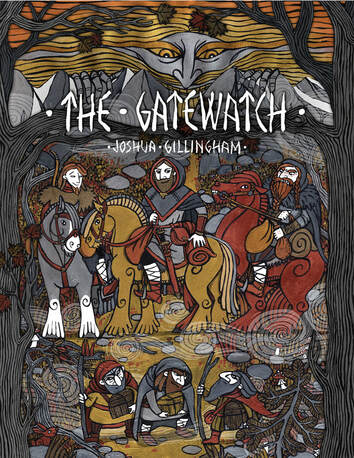



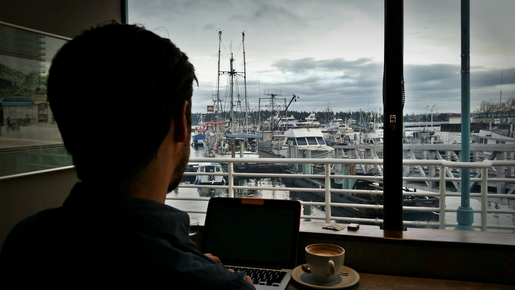
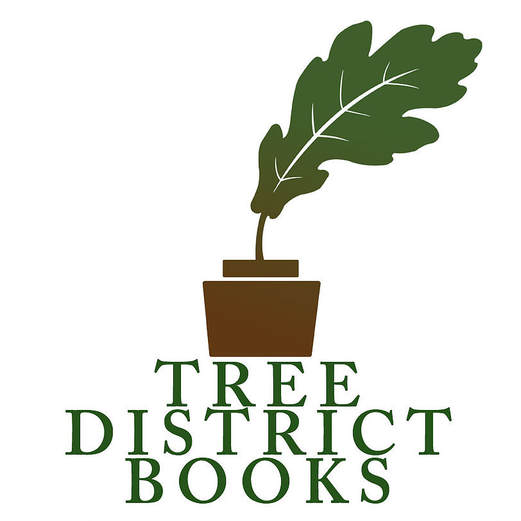
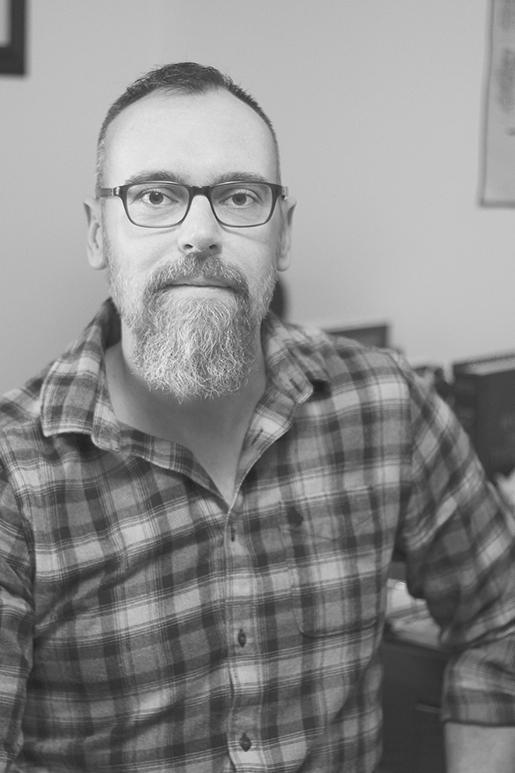
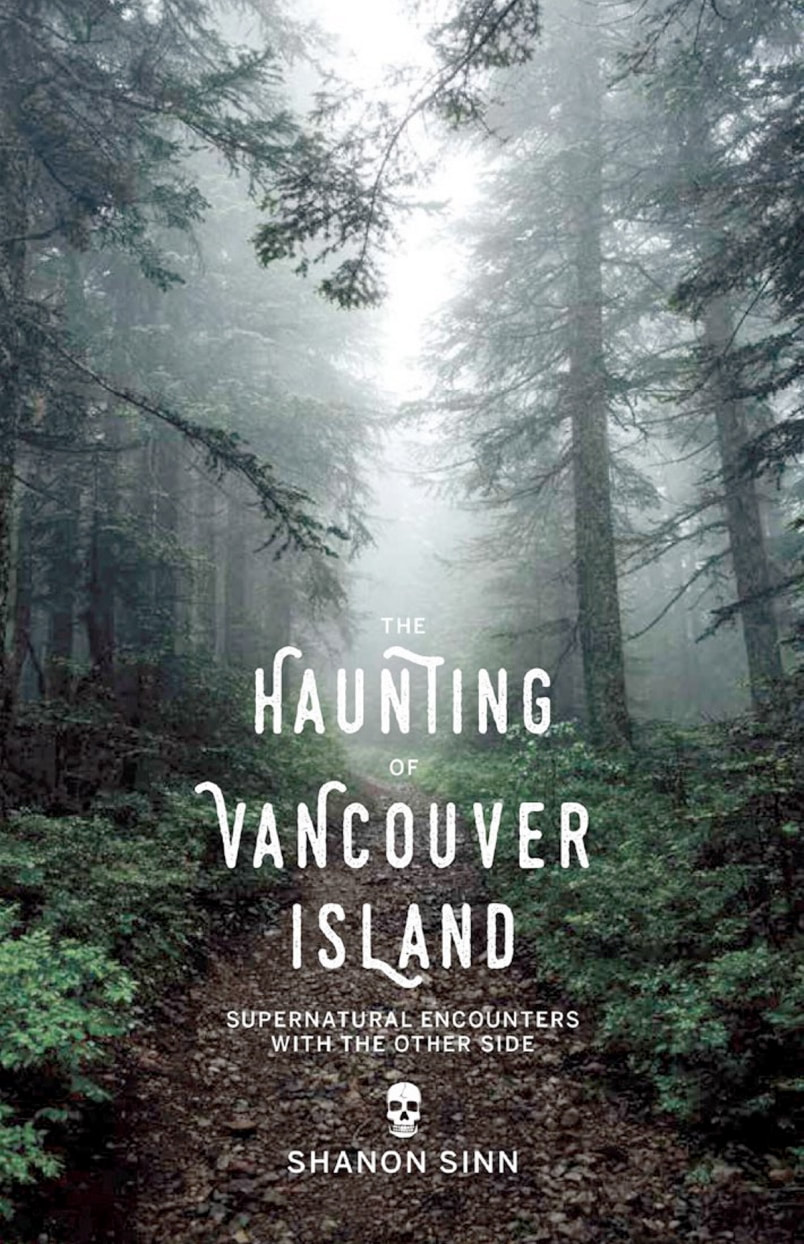

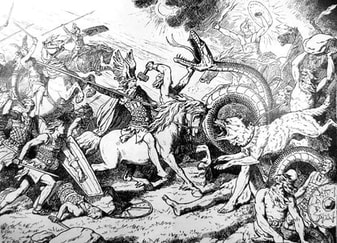

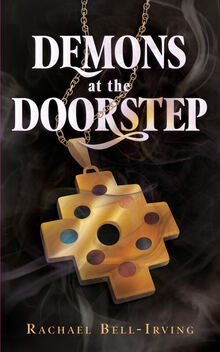

 RSS Feed
RSS Feed
